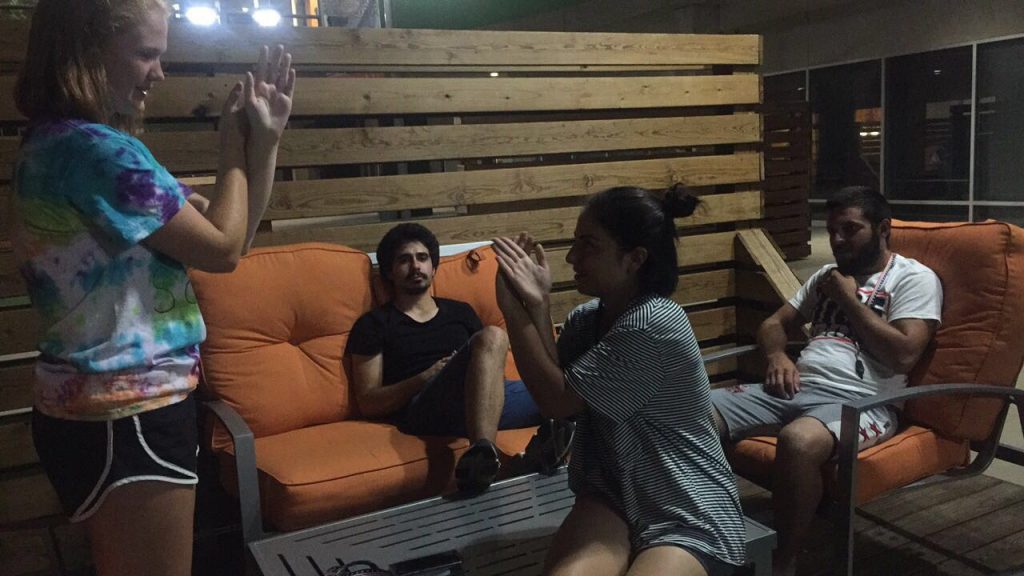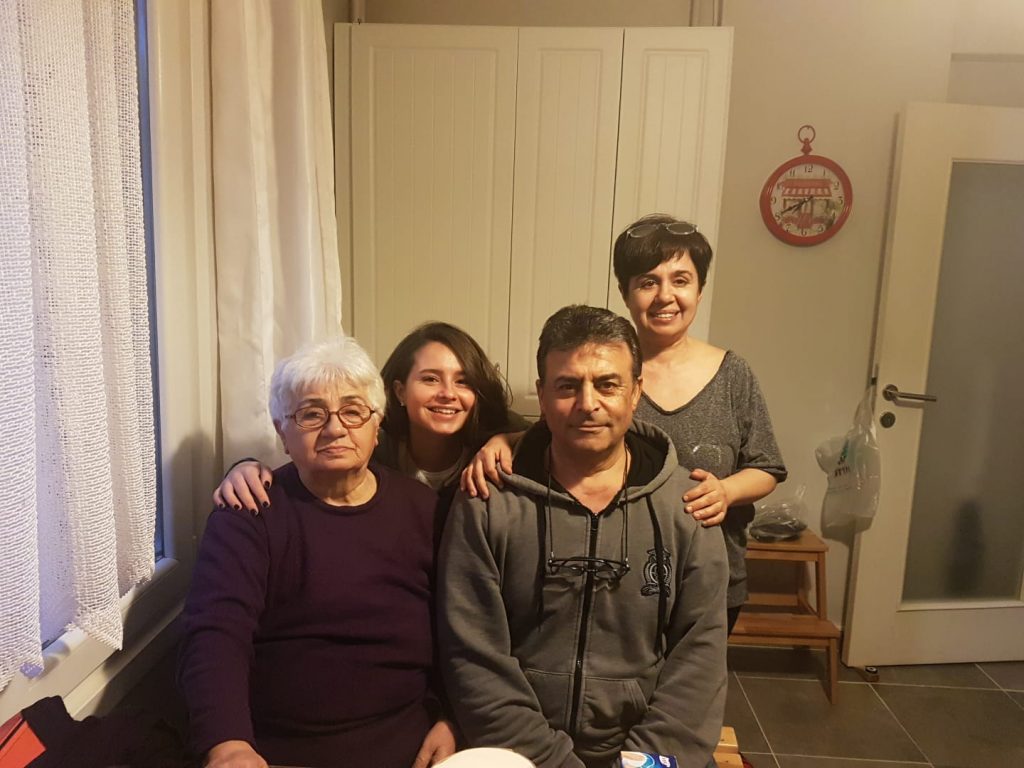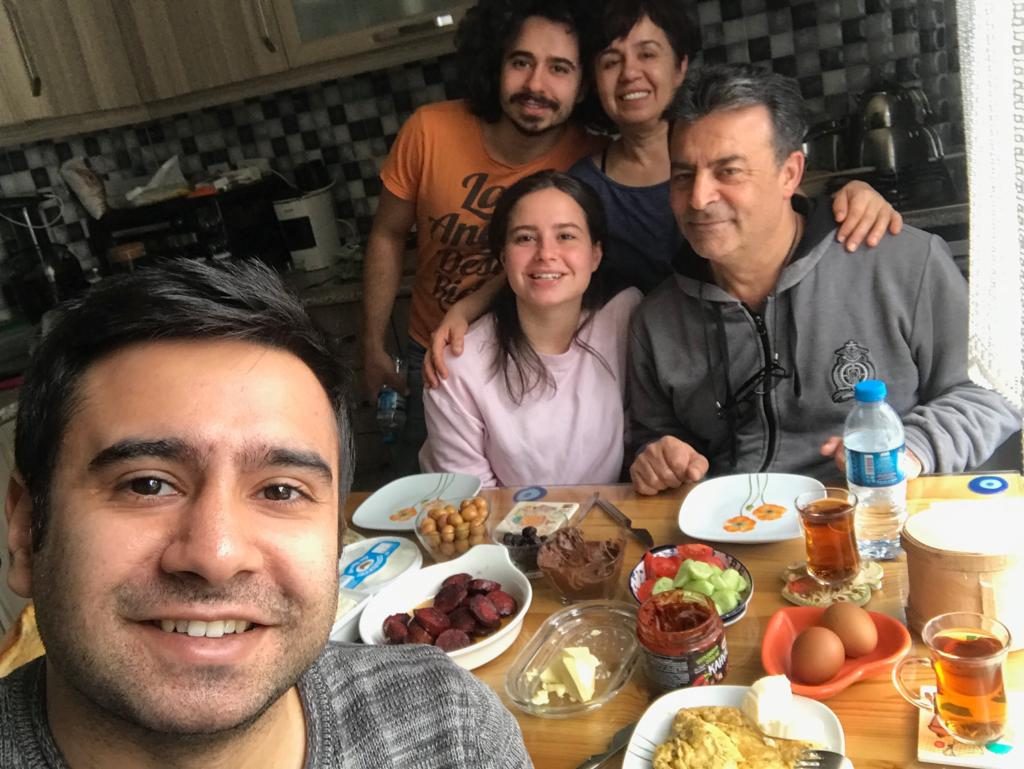The interview I had with Omar Aldaei was enlightenment on a very personal level. During this interview, I was able to gather adequate information on the issue of religion. Moreover, I was able to get first hand information from the interviewee and create personal assumptions. In this essay, I will furthermore discuss the topics that we talked about in the interview and give personal insights in regards to the same.
In regards to what religion is, Omar said, “I think religion is a system of faith, and worship, where many people have subscribed to.” (03: 17) Personally, I agree with his explanation because people of different faiths subscribe to different religions and with time, they develop faith in this religion and begin to worship their idol. We also discussed the issue of Islam and whether Omar had a hand in how he became a Muslim. He was born in a family of Muslims and due to the belief of his family’s teachings, he decided to remain in the religion. “Since when I was young, all I have known about religion is Islam. My parents were born Muslims, my grandparents were Muslims, and the entire line of family were Muslims. I chose to stay in this religion because I believe in their teachings and because I think this is the only true religion.” (05: 30)
In my opinion, I believe most people continue believing in the religion they were brought up into and only a small percentage of individuals change their religion; mostly in their adult life.
In the interview, Omar talked about how he had begun figuring his Islamic religion from the tender age of thirteen. “I figured out what my religion entailed when I was thirteen. This is the time I had more questions about religion than answers, and I usually get religion advice from the Imam or from my parents. At that age, I saw what entails humanity, by seeing how religion helps the poor, and the suffering in the society, I surely wanted to be part of.”(07:00)
During this time, he had started questioning issues including religion which was directed to his family. He adds how he learned about humanity and the concept of helping the poor and the society at large and how he desired to be a part of it. I believe actions in religion are what either pull an individual closer or further away from said religion. In most cases, people want to be involved with a religion that “does the right things” and most of these are what attracts people in a religion. In the case of Omar, seeing that his religion did the right things made him want to be more involved. On the topic of misconception about the Islamic religion, Omar defines it as faith and not a place of ignorance or superstition. He also adds how religion has been there for thousands of years and will continue to be practiced. I also believe that religion is not a superstition but a practice done by people with a certain faith towards a certain idol.
On the issue of discrimination in the interview, Omar admitted being discriminated against and he also talked about how other Muslim individuals had faced the same. In his examples of scenarios of discrimination, Omar admitted to being labeled as a terrorist and people not wanting to be involved with him. Personally, I have also been treated as a terrorist on many occasions due to the fact that I am also a Muslim. Non-Muslims judge us based on our way of dressing which gives off an illusion of “a person we are not” and this creates difficult situations for Muslims. Omar also talked about being denied certain utilities and employment opportunities. It’s also evident that Muslims are sometimes denied access to clothes stores or jewelry stores because of the fear of bringing terror. Moreover, our dressing discourages us from getting employment opportunities due to false suspicions or due to the false fear non-Muslims have against Muslims. The problem with some intolerant non-Muslims is that they make assumptions that since the statistic of Muslims being involved with terrorism is higher than other religions, they pass the same judgment onto other innocent Muslims.
When I asked Omar about how the Islamic religion has impacted his life, he talked about the positive effect on issues such as his education, beliefs, principles, and character which was passed down from his parents and also how other people misjudge his religion when they believe Islam does not advocate for peace. Even with Omar explaining to non-Muslims how peaceful his religion is, he still feels how others misjudge his religion. This again boils down to how people believe that all Muslims are terrorists and with this fear, some of these non-Muslims have no faith that a Muslim can be peaceful. According to Omar, he believes the Islamic religion is the worship of the true god based on your beliefs, principles, topics with the end times, and what humanity entails. He also added how his religion made him freer in his daily activities. Personally, I believe every religion taken by an individual creates an environment of peace and the feeling of satisfaction hence Omar feeling freer in his religion. In addition, on the concept of Islam being a true religion, I believe every religion comes with its principles and truths which is what constitutes to a religion.
In relation to what religion felt close to Islamic, Omar talked about Christianity and how stories in the Bible and Quran are similar. I have also felt that Muslims and Christians have a similar history and both religions seem to have a few beliefs and principles in common. Omar believed that religion was the only way to live in a conflict-free environment and in harmony with different people from different religions. This may be true, but excluding everything else can be hard to keep people in harmony. This is because a sizeable percentage of individuals do not believe in any religion which means that if we were to only use religion to create a livable environment, some people would not want to be a part of it and there would be no continuous peace from all humanity.
In the interview, I decided to ask Omar what would lead me into his religion despite me being a part of it. He answered by saying his religion had good teachings and beliefs which from a personal level, I would agree to. I believe that this religion is as wonderful as other religions out there, and no religion is better than the other despite the beliefs. Despite the many beliefs portrayed and practiced by different religions, I believe that everyone should be engaged in a religion where they feel comfortable and that their beliefs can be of benefit to their lives. According to Omar, he grew up only knowing the Islamic religion which is what has led him to be comfortable with the religion based on its principles such as when he talked about how as a thirteen-year-old, he witnessed how his religion helped the poor. As stated before, religion is not only an institution but also what actions are depicted by its followers. Ethically, we can all differentiate from what is wrong and right. If a person believes a certain action is wrong in a religion, they are most likely not to be involved; however, if the person does not have any moral standards or beliefs, he/she can get involved with any religion. In the case of the Islamic religion, there is the belief of peace, helping the poor and being kind. This religion also follows strict rules based on morals and this is what creates a livable environment among the believers. However, I believe everyone has the opportunity to choose a suitable religion for themselves.





